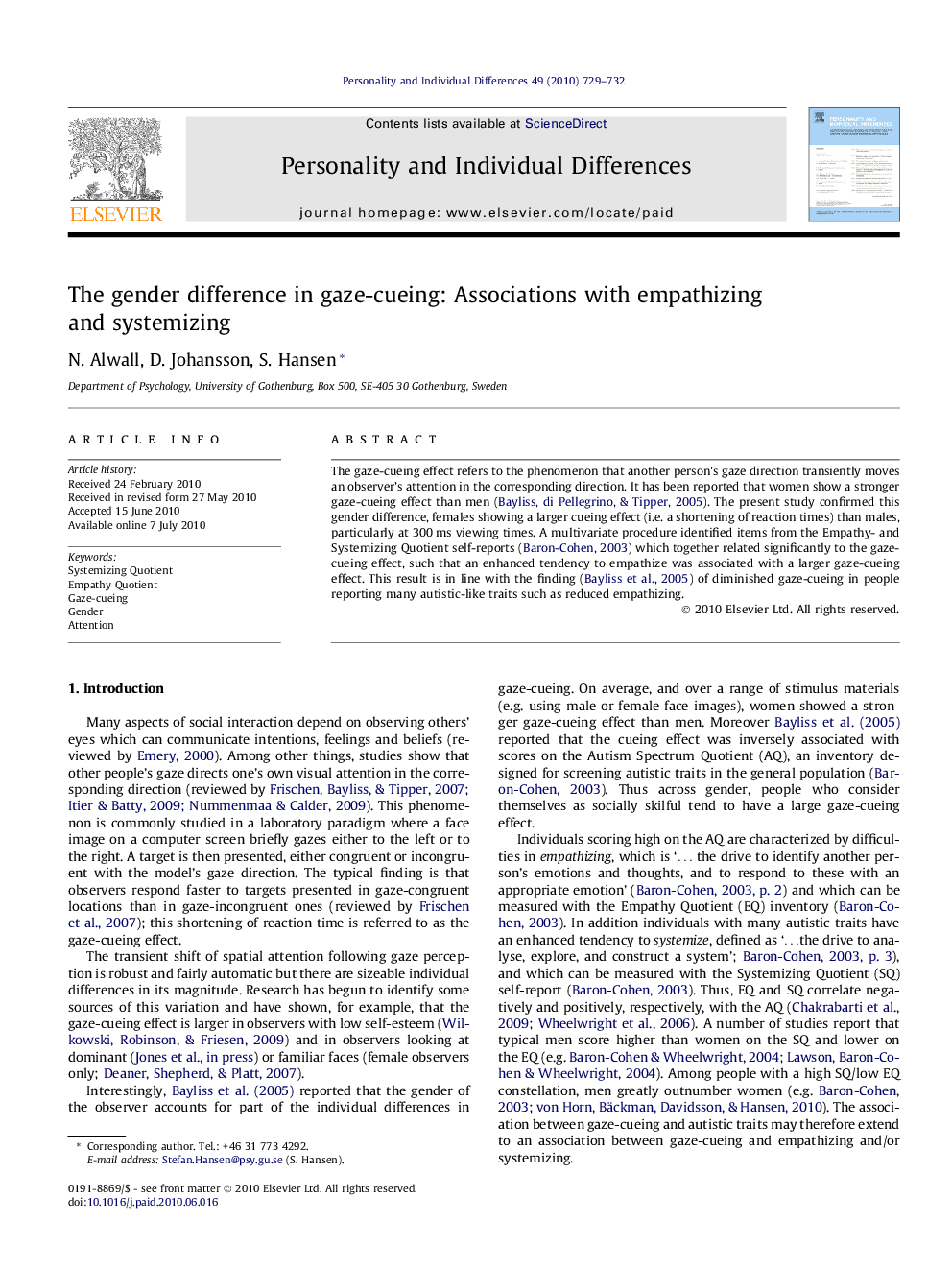| Article ID | Journal | Published Year | Pages | File Type |
|---|---|---|---|---|
| 891894 | Personality and Individual Differences | 2010 | 4 Pages |
The gaze-cueing effect refers to the phenomenon that another person’s gaze direction transiently moves an observer’s attention in the corresponding direction. It has been reported that women show a stronger gaze-cueing effect than men (Bayliss, di Pellegrino, & Tipper, 2005). The present study confirmed this gender difference, females showing a larger cueing effect (i.e. a shortening of reaction times) than males, particularly at 300 ms viewing times. A multivariate procedure identified items from the Empathy- and Systemizing Quotient self-reports (Baron-Cohen, 2003) which together related significantly to the gaze-cueing effect, such that an enhanced tendency to empathize was associated with a larger gaze-cueing effect. This result is in line with the finding (Bayliss et al., 2005) of diminished gaze-cueing in people reporting many autistic-like traits such as reduced empathizing.
